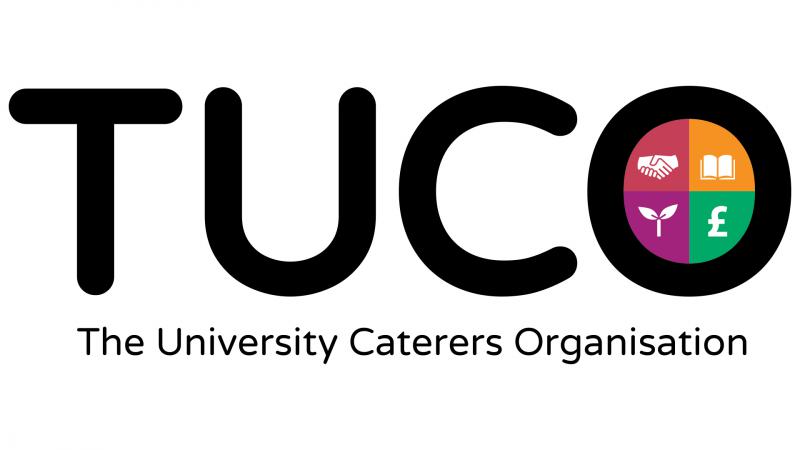The Future of Public Sector Catering - Matthew White, Chair of The University Caterers Organisation (TUCO)
September 18, 2019 - 15:28It may not be all doom and gloom, but there are still plenty of reasons why the public sector catering industry looks forward with a sense of apprehension.
As we build up to the inaugural Public Sector Catering Expo taking place in November, David Foad, editor of Public Sector Catering magazine, asked industry leaders to outline the challenges they currently face and forecast the ones still to come.
Matthew White, Chair of The University Caterers Organisation (TUCO)
 In the higher education sector, we are currently facing vast challenges around commerciality. A national drop in birth rate is adversely affecting intake numbers in 2019 and 2020. Whilst on the global front, Brexit continues to create insecurities around staffing, food supply and student admission. Luckily as in-house operators, TUCO members are in a position to help generate income for our institutions and this must be celebrated and embraced to help guarantee our future.
In the higher education sector, we are currently facing vast challenges around commerciality. A national drop in birth rate is adversely affecting intake numbers in 2019 and 2020. Whilst on the global front, Brexit continues to create insecurities around staffing, food supply and student admission. Luckily as in-house operators, TUCO members are in a position to help generate income for our institutions and this must be celebrated and embraced to help guarantee our future.
To be commercially successfully in this landscape, we need to keep pushing the boundaries and globalising our outlook. I was fortunate enough to see firsthand the groundbreaking Menus of Changes® campaign happening in America universities, and as Chair of TUCO I would like to help develop the principles of this initiative here in the UK. The programme delivers a practical and long-term vision to integrate optimal nutrition, public health, environmental stewardship and restoration, and social responsibilities. These are big goals, but I believe it’s one of the ways in which we can overcome the many challenges we now face.
Unlike our school catering counterparts, and indeed most other public sector catering sectors, in higher education we are not working to fixed budget, especially in terms of our retail catering operations. This means we can deliver an outstanding dining experience on campus, and undeniably we need to. Our customers and our students are a cutting-edge audience, one that demands a global larder, food innovation and a sensitivity to sustainability, provenance packaging and waste. And once term is over, our institutions turn into some of the UK’s largest conference centers delivering premium fine dining to blue chip and FTSE 100 companies. And that’s the unique thing about our sector, from our core work with students, to fellows dining rights, to visiting global heads of states, we feed a broad range of expectations, and one of our biggest challenges is the enormous array of skills required to do so.
Career opportunities in this sector for chefs and hospitality workers are very good, and currently underestimated. Working hours and conditions rate extremely favourably compared to other hospitality sectors, and upward mobility is both possible and encouraged. Next to commerciality, staffing challenges are one of our biggest concerns. To help meet these challenges, TUCO is delivering professional qualifications, study days and tours to help upskill within the industry. This is much needed and will help to meet some of the many staffing challenges of the future but more needs to be done.
With Brexit still unresolved, not only is concern over staffing extremely prominent but the issue is now amplified by the potential of an Australian-style points-based system being introduced for future migrants to the UK. This system would exclude chefs and hospitality workers as it doesn’t currently recognise their skill base. This is not just an issue unique to higher education, and I believe we must all come together as an industry to politically lobby for chefs and hospitality worker’s skills to be recognised, on the points-based system, or we could all be at risk.
I also believe, more than ever before, food is a social responsibility. Our industry employs a diverse range of people and talents. We are a large employer in the locations we operate, and food is finally being recognised as an important driver to university entry. With emphasis being placed on wellbeing and the overall experience, we are seeing universities with excellent sporting, accommodation and dining facilities rising fast up the desirability tables.
In line with student experience, university caterers are now being challenged to become one of the first lines of defense to support student’s mental health and wellbeing. No longer are we being asked to just ‘deliver food’, a task enormous in itself, but our staff are increasingly required to be part of student pastoral care. For example, in catered accommodation, our staff are at the coalface of student living, we see them for breakfast, lunch and dinner and have the opportunity to spot changes in behavior or general health or be available for support. The range of skills required to deliver this pastoral role as well as traditional catering ones brings many challenges, which we must rise to meet.
Despite this, I think we have lots to celebrate in the public sector and as associations we must continue to deliver value to our members in order to support them now and in the future.
You can meet the TUCO team at the PSC Expo in November and find out more about their work and benefits of working with them.


